While watching the Academy Awards in the spring of 1982, I was confident Warren Beatty’s masterpiece Reds (1981), with twelve nominations and the Best Film prize from the New York Film Critics Circle, would take home the lions share of awards. Really, I thought foolishly, the only competition was Raiders of the Lost Ark (1981), but little did I know the British were coming. Warren Beatty said he knew the tide had turned against his film when the movie lost Best Costume Design, and then continued to lose through the evening. Reds (1981) finally won the cinematography award, as it should have, and then took Best Supporting Actress. OK, I thought, we are going to be alright. Beatty strode to the stage to accept his Oscar for Best Director, and I assumed the stage was set for Reds (1981) to win Best Picture, which would have helped the massive film at the box office.
Instead, the hugely over praised British film Chariots of Fire (1981) ran away with the Best Picture leaving Beatty seething, and Hollywood aghast. I know in hindsight they regret this decision because Reds (1981) was a film for the ages, and Chariots of Fire (1981)….well, was not.
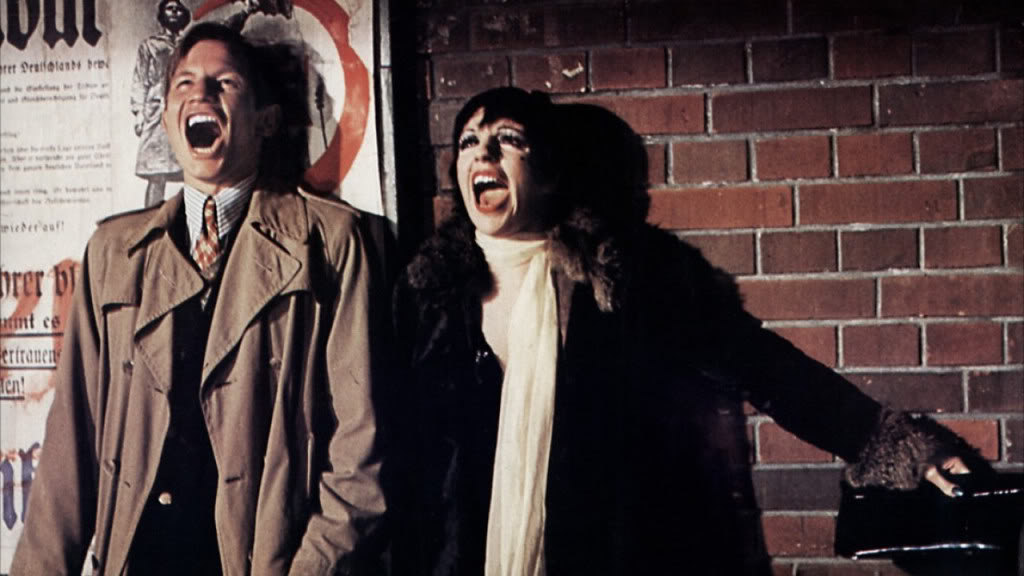
I remember watching Cabaret (1972) winning award after award in 1972, besting The Godfather (1972) in category after category, including Best Director! By the time they got to Best Picture, Cabaret (1972) had won eight Oscars, The Godfather (1972) just two, so when Clint Eastwood came out to present the Best Picture award, most felt Cabaret (1972) was about to win, but instead The Godfather (1972) won, as it should have. The surprise was not that The Godfather (1972) won, it should have, but rather that Cabaret (1972) won eight awards without the top prize.
If one had to choose the most jaw dropping moment in Oscar history since 1990, what might it be? I am not talking an eyebrow raising moment, a wow moment, or an unexpected win that no one really saw coming but was never out of the realm, I am talking a take your breath away stunner, an Oscar win that you still cannot believe, that still leaves you raging and totally blown out of your socks.
That kind of shock.
The kind of shock that leads you to put your put your foot through the television, that causes you to rage and vent for weeks, months, even years later, that causes you to write it about years after it has happened.
Would it be Braveheart (1995) winning Best Picture and Best Director? A surprise but no not a stunner. The Academy loves films directed by actors.
Would it be the sweep of Titanic (1997) cruising its way to a record tying eleven Academy Awards? No, by Oscar night it was as sure a win as anything ever had been, offering Hollywood the chance to pat itself on the back for making a big, old fashioned movie.
Perhaps Roberto Benigni winning Best Actor for his work in Life is Beautiful (1998,) a performance of incessant, wildly overdone mugging? After he won the Screen Actors Guild Award for Best Actor (explain that), proving he made the dinner circuit work for him, it was a no brainer he would win the Oscar, however silly. And to this day it looks like one of their worst choices.
How about Gladiator (2000) winning Best Picture? No, not really. Big, old fashioned epic that did well at the box office? How could they resist?
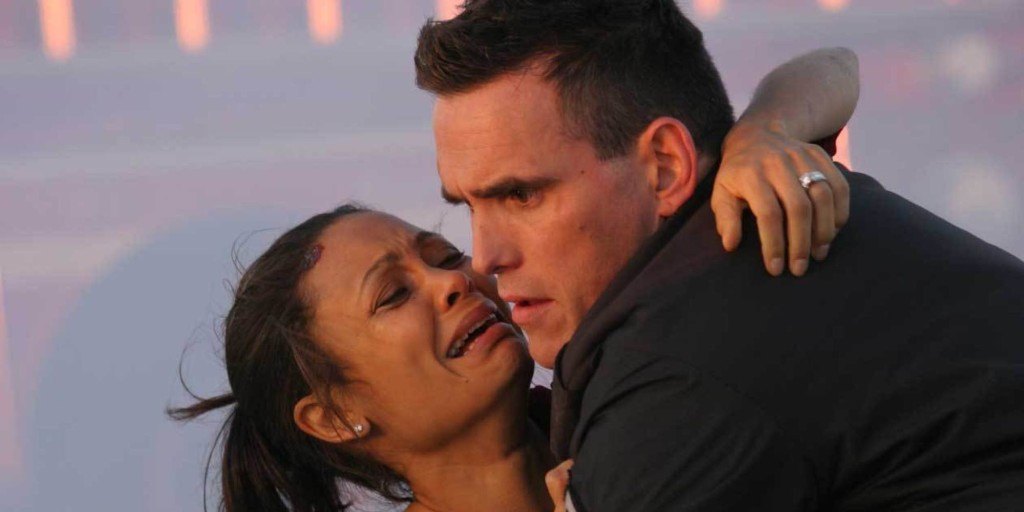
Crash (2005) winning Best Picture? Yep it is up there, a huge shock, even for presenter Jack Nicholson who was himself stunned by the single word he was about to say. Not even Nicholson was a good enough actor to hide his surprise. He walked out there confident he was going to award Brokeback Mountain (2005), the Oscar for best picture of the year. Nope, instead the Oscars crashed and burned.
Shocks all, and the above does not include the omissions and those snubbed for nominations. I am talking winners and losers.
No the biggest shock, by far, the single greatest jaw dropper in Oscar history since 1990 would be Saving Private Ryan (1998) losing Best Picture to Shakespeare in Love (1998). It was a win no one saw coming, that stunned the audience in the building, left presenter Harrison Ford speechless, and sent Steven Spielberg out of the building refusing to do press, furious he had been beaten. The rumors that Miramax head Harvey Weinstein had simply outspent thereby buying the Oscar that many believed had Spielberg spitting nails.
Think about it.
Saving Private Ryan (1998) wins Best Film Editing, it is the best put together film of the year. It then wins Best Sound and Best Sound Editing before winning Best Cinematography. The fifth award of the night goes to Steven Spielberg as Best Director, making Saving Private Ryan the best directed film of the year, therefore the best film of the year…right?
Not according to the Academy.
When Harrison Ford strode out to presumably crown the war epic the years best film, there was a confidence in the building. Indiana Jones about to hand the spoils to his director, Steven Spielberg, still beaming after holding his second Oscar in five years for direction. He opens the envelope, is visibly shaken and read the three words, though they are not ones we expected to hear, that he expected to be reading, that Spielberg expected to hear. Instead Ford reads, “Shakespeare in Love”, and jaws drop in the building, around the world, in my living room. How is this possible? How does the best directed, best shot, best sounding and best cut film lose Best Picture? It seems inconceivable, hell it seems downright stupid, it did then, it does still.
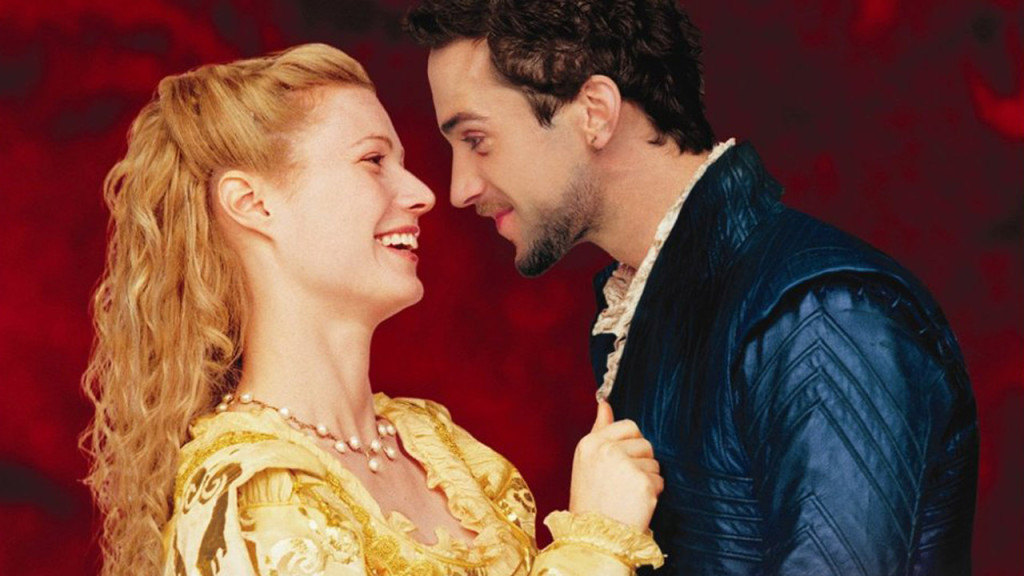
Saving Private Ryan (1998) opened in the summer, astounding critics with its opening sequence, the combat as American forces landing on the beach on D-Day. The gate goes down and at once the bodies of the soldiers are stitched with machine gun fire, their bodies torn apart, they fall where they stand dead. Wave after wave of boats hit the beach and many die, the casualties are staggering, but they had planned for this, and they just keep coming, and eventually take the beach from the Germans. The forty minute sequence is the most intense, remarkable battle footage ever put on screen, nothing prepared us for it, we had not ever seen realism like this before. We are plunged into the hell of war, the chaos, the madness, the ferocity like never before, and it happens again at the end of the film as well. In between the film is as much about war as it is war movies, the cross section of America represented by the group of young soldiers sent to find Ryan.
It is as dark a film ever made about war, where death comes unexpectedly and swift, so much so that it has become almost routine to the others in the troop, or so we think. Quietly we come to understand how each death has a terrible impact on each man, leaving its scar on their soul for the rest of their lives.
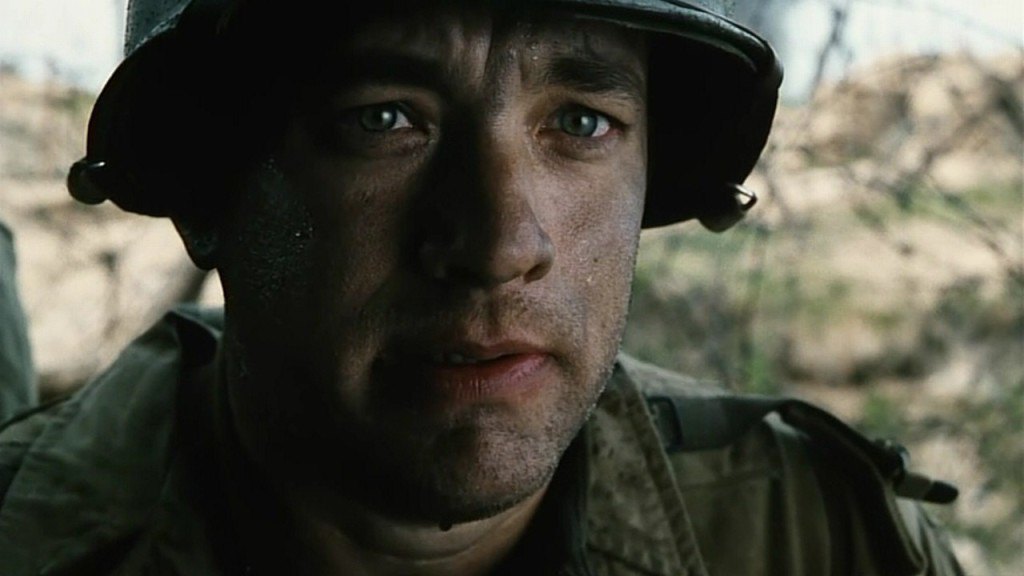
Tom Hanks is superb as Captain Miller, the quiet, stoic leader of the group who is haunted by the number of young men have died while in his group. He wonders if his wife will ever recognize him when he goes home? He knows the war has changed him in ways that can not ever be reverted, perhaps he knows better than anyone he cannot go back to what he had. When the gentle, little medic portrayed beautifully by Giovanni Ribisi dies after a battle, he goes off by himself, away from his men. Sitting amidst the rubble he breaks down, the sobs eventually taking him over, shattering him in front of our eyes. It is the scene in which Miller is made human for us, becomes one of us, just as afraid, terrified in fact of what is happening all around him. Anchoring the film, Hanks is brilliant, but also very aware as an actor he is part of an ensemble and happy to be such.
There were war films before Saving Private Ryan (1998) there have been films since, but nothing, before or after ever made war so real, so frightening, so intense. No movie nor director ever captured the chaotic madness of combat, the sights and sounds, God all that was missing was the smell. Spielberg created a masterpiece, and the sense in the screening rooms as critics watched the film was exactly that, we had not ever seen anything like this and he had again changed the landscape of American cinema.
The Oscars that year became all about campaigning, and Miramax proved to be the masters of the Oscar campaign. After losing the Oscar for Best Picture, the Dreamworks PR staff was stunned and like Spielberg quietly raging. “Never again” they said. The following three years Dreamworks films won the Academy Award for Best Picture, taking a page from the Miramax campaign book and out campaigning the master, Harvey Weinstein.
Film is forever. Film is immortal. History has shown in less than twenty years it is Saving Private Ryan (1998) that audiences remember, and though a fun, frothy comedy, beautifully written, Shakespeare in Love (1998) has slipped into the background. Yes it has some good things, a lovely screenplay, Gwyneth Paltrow is terrific (though she not deserve that Oscar), the sets and costumes fine and the score excellent. But in no way was it the best film of the year.
And the fact Saving Private Ryan (1998) lost the Oscar to that film, to any film that year is a stunner. It was a shock then it remains a shock now, one of those things you just never get over.
Read More: The 10 Worst Best Picture Winners in Oscars History

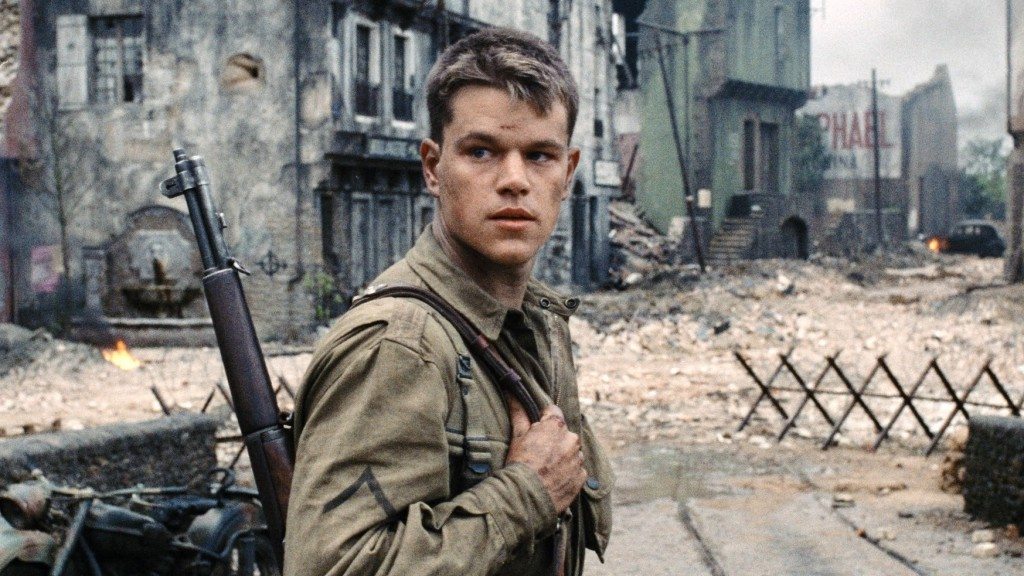
You must be logged in to post a comment.